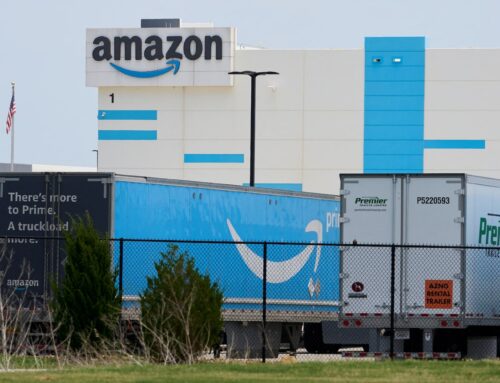What Texas Cannabis Consumers Have to Look Forward to (Eventually)
November 25, 2025
Two weeks ago, I was the cannabis columnist for The Pitch Kansas City. I had just published an article regarding the unregulated hemp industry in Missouri, met with a local entrepreneur to highlight his cannabis manufacturing company’s recent expansion to Arizona’s legal market, and gobbled down a package of edibles for a product review.
Now, I sit in my new Austin apartment as the Chronicle’s assistant news editor, wondering what I have gotten myself into. After MO legalized recreational cannabis in 2022, I thought I had it made. To walk down the street, stare at a large menu with a variety of products, and be out the door with whatever form of THC I was feeling that day … yeah, I’d say it was a pretty good deal. As I grew accustomed to the process, I constantly found myself wondering why anyone would want to live in a state where weed is illegal. Then I moved to Texas, one of the most restrictive states in terms of cannabis access, alongside my previous neighboring state, Kansas.
Prior to making my 730-mile move, I thought to myself, At least Texas has a more open hemp industry. We’ll see what it has to offer. But even that is changing. On my very last day with The Pitch, the U.S. House passed the Republican-proposed spending bill, which reopened the federal government after a historic nearly month-and-a-half-long shutdown. Within that spending bill is a provision that will change the nation’s hemp industry.
Due to the 2018 Farm Bill, which created a federal loophole that allows for retailers to legally sell products that contain less than 0.3% THCa, states across the nation vary in terms of local hemp regulation. In turn, it has led to retailers selling products that contain well over the legal THCa limit. This is great for consumers in states like Texas, with an absent recreational cannabis industry, as it creates an easily accessible path to marijuana products. But in Missouri, along with others that already have an established cannabis market, the loophole creates consumer confusion. Now, after years of debates, the federal government has suddenly taken a stance on hemp that will phase out many of the products that are currently freely available in these states.
And although there is a 12-month delay before the new rules are implemented, reform is on the horizon, and it has me curious about what’s next. If you are a Texan who has turned to your local hemp shop to get your fix, you are also probably wondering what’s next. As far as where the hemp market will go, that is pretty much up in the air, as anything can change within the next year before the new laws go into effect. What I can tell you is what’s next when legal recreational cannabis eventually hits the Lone Star State, albeit five, 10, or 20 years down the line.
If and when Texas legalizes recreational cannabis, you’ll hope the state does it the right way. With nearly half of the states across the nation embracing recreational cannabis use, the other half has plenty of examples of what to do and what not to do.
If you’ve ever been to Colorado or California and stepped inside one of their dispensaries, you know that the process for consumers is fairly smooth. You walk in, show a security guard your ID, they take you into the next room where all of the products sit, you make your selection, and you’re on your way. This procedure is no different in Missouri, besides the fact that your dollar probably won’t get you quite as far.
As a consumer, there isn’t much more to ask for, especially considering the routes that had to be taken when cannabis was prohibited. And for the state, the benefits of a legal cannabis market could be considered even more prosperous.
Since the legalization of medical use in 2018 in my home state of Missouri, thousands of jobs have been created, hundreds of millions of dollars in tax revenue have been generated for cities and the state, and countless joints have been burned. According to the Missouri Department of Health and Senior Services Division of Cannabis Regulation’s 2024 Annual Report, which was released in August, the state’s medical and recreational programs generated $3.27 billion in total sales since the program’s inception.
On top of the local and state sales tax that consumers pay when purchasing marijuana, Missouri’s legal framework has etched out a small tax percentage that benefits the state’s public defender program, substance abuse programs, and veteran services, and goes toward expunging nonviolent criminal records associated with cannabis. In 2024 alone, the Show-Me State’s cannabis industry yielded $244.93 million for these services.
But there are states that have gotten it wrong when establishing cannabis markets. Take our neighboring state, Oklahoma, for example. After Oklahoma passed legal medical cannabis in 2018, the state granted thousands of licenses for cannabis facilities, in anticipation that the recreational market was right around the corner. Since the recreational vote failed in 2023, the state now sits with an incredibly oversaturated industry where quality has been given up for quantity. In Missouri, there are just around 500 licenses in the sector, which has created an even supply and demand chain.
So when Texas finally comes around on recreational use, one would hope that they take a deep look at all of the states’ structures and distinguish best practices from each to create a flourishing industry down south. While I willingly made my move and am glad that I did, I will continue to be deeply saddened that I can no longer walk down the street, greet my neighborhood budtender, and be out the door with an ounce of high-quality, lab-tested cannabis in hand within just a few minutes. I may or may not have to lean on some of my old high school tricks to get my green. Let me know if you know a guy.
This article appears in November 28 • 2025.
Search
RECENT PRESS RELEASES
Related Post




